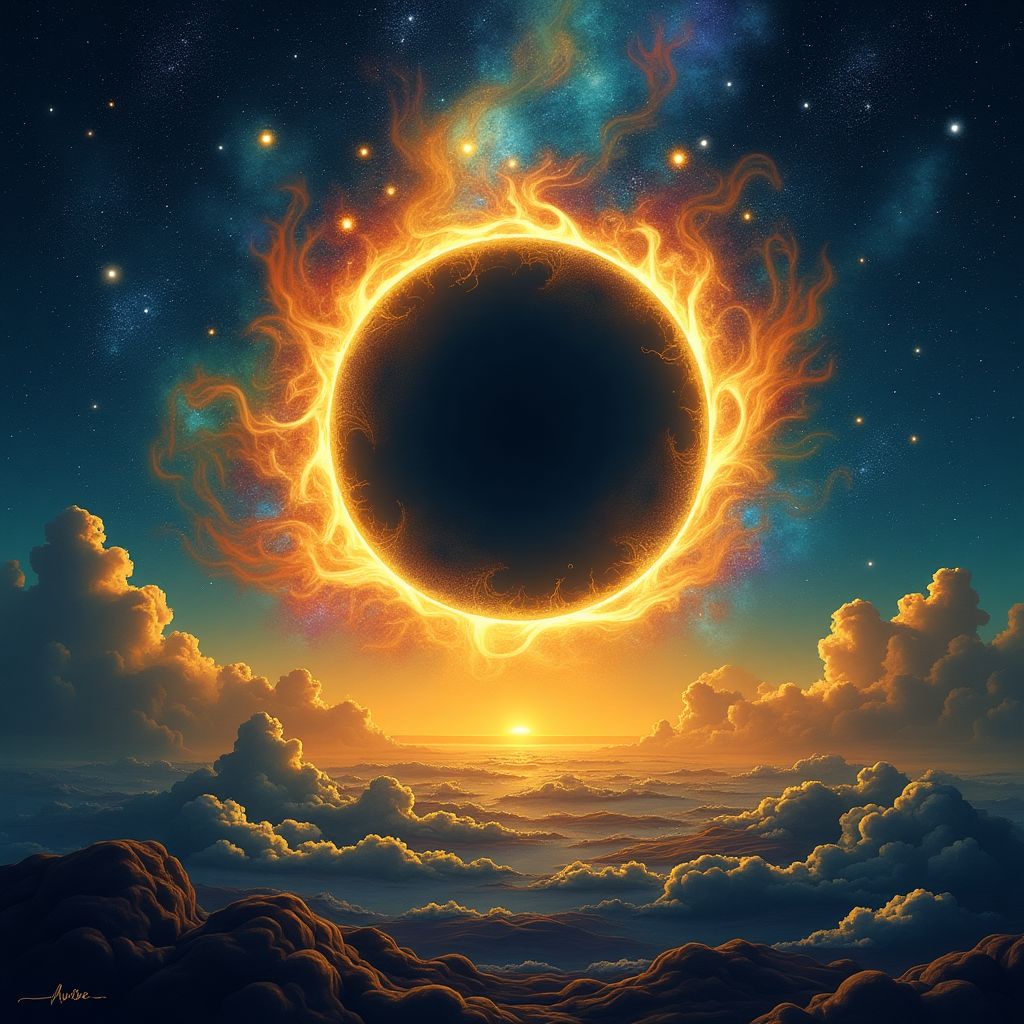Imagine standing under a vast sky as the moon gracefully dances across the face of the sun, casting a mysterious shadow over the Earth. It's an awe-inspiring encounter that stirs the soul and reminds us of the vastness of the universe. For anyone with a sense of wonder and curiosity, observing a total solar eclipse is an unforgettable event that should be on your cosmic bucket list.
Inspired by Be Smart's Joe, this guide dives deep into the celestial mechanics behind solar eclipses, the emotional experience, and practical tips on how to best witness this astronomical wonder. Get ready to set sail on a journey through time and space, embracing the cosmic ballet that few are fortunate enough to witness.
Why is This a Big Deal?
Let's put this into perspective—the sun is a humongous fiery ball, 100 times larger than Earth, yet, every once in a while, our modestly-sized moon eclipses this giant beacon of light, transforming day into night in the blink of an eye. What kind of science fiction sorcery is this? Nope, it's the magic of the universe's own lottery winning numbers. Our moon happens to be 400 times smaller than the sun but conveniently, it sits 400 times closer to us than the sun does. This delightful coincidence is why both celestial bodies appear roughly the same size in our sky.
And on April 8th, 2024, the earth will once again bear witness to this majestic event as the moon’s shadow befriends certain swathes of North America. Given that the United States won’t experience another total solar eclipse for another 20 years (unless you’ve got VIP passes to other-worldly events), this is truly a once-in-a-generation spectacle!
Where and How to Watch the Eclipse
In the realm of eclipse watching, location is everything! Being in the "path of totality" is like snagging front row seats to a celestial opera. The path of totality is the splendid stripe where the moon completely obscures the sun, turning awe into utter amazement. Make sure you’re cozily nestled in this path, which is a thin line snaking its way through parts of North America for the upcoming eclipse.
But remember, as much as we'd love to control everything, I can't command the weather. So, fellow eclipse-chasers, that's on you. Click on those trusty cloud-forecasting apps, check out detailed online maps, and maybe even chat with some local weather enthusiasts for tips on avoiding pesky cumulus curtains.
Gear Up: Tools and Safety
Like every good adventurer, gear is key! Never succumb to the siren call of staring directly at the sun because, spoiler alert—it can cause permanent damage to your eyes. Invest in a pair of those spiffy eclipse glasses. Yes, they might remind folks of 3D cinema trips from the early 2000s, but your eyes will thank you.
And if you’d like to throw a DIY challenge into the mix, how about building your own pinhole camera projector? It’s environmentally friendly and makes perfect use of that empty cereal box you haven't recycled yet.
- Trace and cut a white sheet of paper to line the inside of the box.
- At the other end, carve out two notches in the lid. Cover one with aluminum foil and poke a pinhole through it.
- Stand with the box facing away from the sun, peek through the uncovered notch, and watch the eclipse dance on the paper screen inside!
The Eclipse Experience: What to Look Out For
An eclipse isn't just about the main event. It's a symphony of changes, shading the world in newfound colors and whispers:
- Baily's Beads: As the moon skims over the sun's surface, light peeks through lunar valleys creating a bead-like effect on the sun's edge. Named after the astronomer Francis Baily, this phenomenon is a shimmering prelude to totality.
- Diamond Ring: Just before totality, a single bead of sunlight might remain, lighting up part of the corona and forming a stunning "diamond ring" effect.
- Shadow Bands: Only the luckiest of earthlings might see these elusive and mysterious bands of light swaying like waves on desert sand, a sight as unpredictable as it is beautiful.
- Chromosphere and Prominences: Look out for glowing fringes or prominences of hot gas, unique to that eclipse moment, shaping our view of the sun's outer layers.
A total eclipse is more than a mere astronomical event. For the observer, it's a profound experience that reconnects us to the cosmos—letting us ponder our very place within this chaotic, yet breathtaking universe. The world seems different under that eerie twilight, leaving you with stories to tell and experiences to cherish.
The Science Behind the Spectacle
From ancient civilizations casting stones and recording the sun's temporary disappearances, to modern scientists analyzing the sun's corona, eclipses are a playground for discovery. In fact, the 20th century's groundbreaking verification of Einstein's theory of general relativity owed part of its success to an eclipse. Imagine discovering a new planet just because the sun conveniently turned the lights off for a couple of minutes—isn't science awesome?
Roam the halls of time, and you'll see how scientists like Jules Janssen laid down scientific milestones with nothing but eclipses as their guiding light. Want to know where we discovered the element helium? Spoiler—it was from the sun's corona during an eclipse! The melodies of celestial bodies swaying above have answered questions scientists long pondered and continue to invite curiosity and exploration.
Reflecting on the Big Picture
Let's finish poetic—these celestial shows are reminders of our place in a dynamic universe. It's a reminder of the cosmic pendulum swinging through time, making one reflect on existence, life, and our innate urge to explore the unknown. We are passengers on spaceship Earth, and life on this planet is too marvelous not to take pause and watch a total solar eclipse when the opportunity arises.
Will there be a day when humans cannot witness a total solar eclipse? Yes—our moon slowly drifts away, serenading towards the cosmos. Hundreds of millions of years from now, Earthlings (tentatively) will sip synthesized chai lattes under a starry sky wondering what eclipses were all about. But that's many descendants down the line. For now, let's embrace this cosmic blessing and let it fuel our curiosity about the universe and beyond.
Join the Discussion: Your Solar Eclipse Experiences
Have you been lucky enough to witness a total solar eclipse? If so, what did you feel? How did it change your perception of the universe? Do you plan on watching the 2024 eclipse? Share your thoughts and experiences below in the comments! Let's create a vibrant iNthacity community dedicated to sharing knowledge and inspiring fellow citizens and visitors of the "Shining City on the Web."
Subscribe today to our newsletter at iNthacity.com to keep exploring the whimsical yet enlightening universe of technology, science, and culture! Let's skyrocket our understanding one impressive cosmic event at a time!
Wait! There's more...check out our gripping short story that continues the journey: The Eclipse of Emperor Xaitech
Disclaimer: This article may contain affiliate links. If you click on these links and make a purchase, we may receive a commission at no additional cost to you. Our recommendations and reviews are always independent and objective, aiming to provide you with the best information and resources.
Get Exclusive Stories, Photos, Art & Offers - Subscribe Today!


























Post Comment
You must be logged in to post a comment.